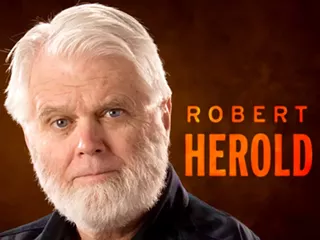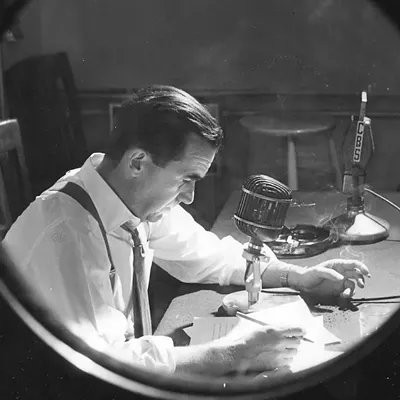All of Spokane hopes that Ron Wells and his team can restore the Ridpath Hotel. Standing empty, it signals abandonment, which invites crime and related trouble from an area reaching out several blocks. Were it to reopen, the economic and social impact would revitalize that entire part of the downtown. At stake is the public interest.
Given all that, why has Cathy McMorris Rodgers and her Republican Caucus worked so hard to derail the project? Our Congresswoman would demur. Derail this important private-sector project? What are you talking about?
Her party's contrived debt ceiling fiasco, with another possibly in the works — that's what I'm talking about.
You see, it's all connected. The public interest connects to private interests — libertarian fantasies to the contrary, there's no breaking these connections. You mess up one, you mess up the other. The Ridpath restoration serves to illustrate this: "You don't have to actually default to make the bond markets so jittery that they react," says Ron Wells. "The very threat last month," he reports, "made the bond markets jittery."
And "jittery" for Wells has resulted in an increase in borrowing costs, reducing the size of his loan by $802,100. Unless this private sector financial situation can be addressed — and let's pray it's not made worse by a repeat of GOP recklessness — Wells may not be able to go forward to address this important public need. And all because Cathy McMorris Rodgers and her caucus seek to use the debt limit as a weapon.
Last Friday at St. Aloysius Church on the Gonzaga University campus, Spokane celebrated former House Speaker Tom Foley. Our congresswoman spoke in glowing terms about Foley. It wasn't lost on many in attendance that she has opposed most everything he stood for.
Tom Foley worked to balance the national interest with the interests of his district. Government was important to both. A fair reading of Rodgers' voting record shows opposition to national needs (economic stimulus projects, health care, immigration reform) and local needs (gutting the Community Development Block Grant Program, cuts to Head Start, and most recently deep reductions in the food stamp program). CDBG, Head Start and food stamps were designed to help poor districts like hers.
To make matters worse, she agreed to the infamous Grover Norquist blanket anti-revenue pledge, a big part of the overall problem. The government needs enough revenue. Remember, Ronald Reagan's tax cuts were a promise to create more revenue for government functions. If we just cut taxes, we would see more growth and more revenue, he argued. (In retrospect, it reminds me of the old line about the rain following the plow.)
But back to Rodgers' vote to cut food stamps: Long-time Congressman Norm Dicks credited Foley with creating the program, which has helped feed the nation's hungry — and helped farmers and grocers. And Journalist Elizabeth Drew further elaborates on Foley's role in her recent Rolling Stone article, "The Republicans' War on the Poor." Democrat George McGovern and Republican Bob Dole had "joined together" to address the obvious need for better nutrition, especially for small children. They had some success, but when it went to the House, the sell got harder. Enter Tom Foley — "the real legislative hero of the program," writes Drew.
What did Foley do? He wisely combined the food stamp program with agricultural subsidies, engaging in what Lyndon Johnson might have referred to as an example of how politics is "the art of the possible." The conservative farmers were able to be paid for their surpluses, and the liberal city folk who needed the program for urban poor, but resisted farm subsidies, had to go along. Now Rodgers and her party caucus have slashed Foley's food stamp program — Drew terms their motive "sheer spite" — as they continue to fund crop subsidies for better-off farmers.
So just five weeks after Cathy McMorris Rodgers voted to undo Tom Foley's legacy and leave our nation's hungry out in the cold, she concluded her glowing remembrance of him in the Spokesman-Review by saying, "We should all follow his example."
So here's the question — for Spokane, for the Ridpath Hotel and for all those who rely on the social safety net: Over the coming months, will we see and hear the Cathy McMorris Rodgers who spoke at St. Aloysius, or will we see more displays of knee-jerk voting in line with whatever her radical right base demands? If it's the latter, Spokane and Wells may lose the Ridpath, while our already serious poverty situation gets even worse.
By the way, the title of Drew's article is a riff on a speech by John Kasich, the Republican governor of Ohio. He said: "I'm concerned about the fact there seems to be a war on the poor; that if you're poor, somehow you're shiftless and lazy.
"You know what?" he continued, "The very people who complain ought to ask their grandparents if they worked at the WPA." ♦





















